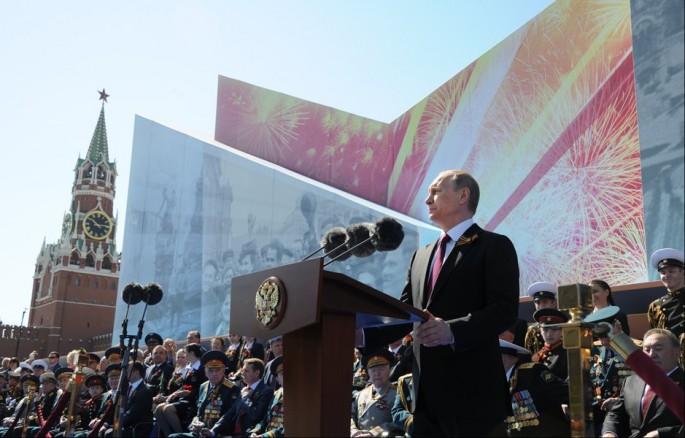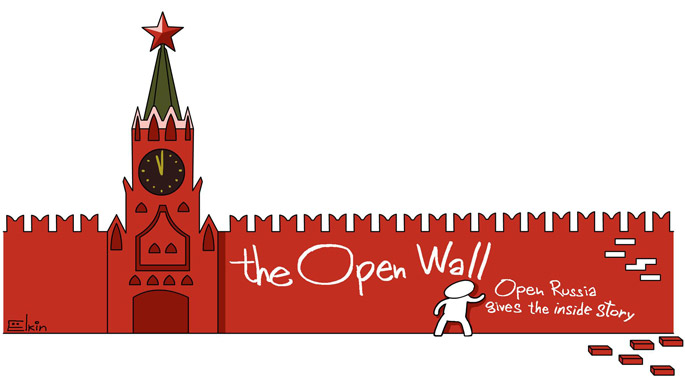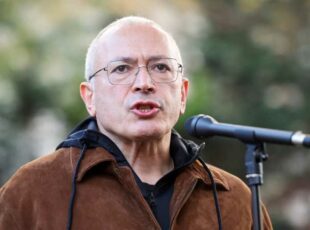Moscow claims its 71st victory
Moscow claims its 71st victory
Today, Russia celebrates the seventy-first anniversary of victory in the Great Patriotic War. For the Kremlin, this is the best war of all – because it’s already been won …

To hold this day in great esteem is the norm for several generations of Russians. But the regime, well versed in the emotional responses of the nation, has long used the war as a pretext to weave narratives of patriotism, heroism and unity – and subsequently exploited these narratives to its own ends. According to a recent Levada Centre study, “The Great Patriotic War still remains one of the legitimisations for Putin’s regime – a political regime that lacks any vision of the future but feeds on the juices of the glorious past and identifies itself with it.
From the Second Chechen War to Russia’s operations in Syria, military conflicts have always done a great deal of good for Vladimir Putin’s approval ratings. But the Great Patriotic War is the best war of all because it’s already been won. How it was won, however, is another matter …
To frame the debate, the regime selects a different set of opponents. Today, homegrown historians who disagree with official interpretations of canonised feats, are now in the firing line. Alarmed by “foreign falsifiers of history,” the Kremlin has riposted by downplaying the Allies’ contribution to victory.
None more so than The War: Myths of the USSR, 1939-1945, a book by Vladimir Medinsky, current Minister of Culture, which is prominently displayed in bookshops across Russia. In it, Medinsky openly mocks the anti-Nazi motivation of the Allies: “Now, what about the propaganda doctrine of the British? When the biggest colonial empire in the world proclaims that its primary geopolitical goal is to stop the aggressive colonialism (!) of the Germans – well, my friends, that’s a claim ‘more powerful than Goethe’s Faust’ [an allusion to an ironic comment by Stalin about a poem by Gorky]. And what about the official doctrine of the Americans? On paper, it’s concerned with much the same thing – the fight for democracy, of course. In reality, however, the principle behind it is simple – ‘We’re an ocean away from you. Let those crazy Europeans slash each other to pieces again, and we’ll make some dough off military supplies. But more, more, more than during World War One.’”
On the eve of Victory Day, the Russian media pulled no punches in its analysis of the Allied anti-Hitler coalition. Retired colonel Anton Brinsky wrote in Nezavisimaya Gazeta, for example, that “our allies opened a second front in Europe only in June 1944 – when they realised that the Red Army would be able to finish off Nazi Germany on its own.”
It has to be said that such derogatory comments about the Allies’ actions have long since become commonplace in Russia – and they’ve even migrated into school history textbooks: “[Prior to the opening of the second front], it was up to the USSR to contain the onslaught of the Wehrmacht’s primary forces. This didn’t suit the Soviet leadership – suspicions emerged that what the UK and US really wanted was the total depletion of both German and Soviet manpower and resources, which would enable the former to impose their own conditions of peace upon the latter.” “In 1942, the Allies’ endeavours were confined to the North African theatre.” “The Allies were not proactive in the Pacific either.” And so on and so forth.
Over the years, Vladimir Putin’s own position vis-à-vis the Great Patriotic War has also shifted, suggesting that our history books follow his example.
“International temporisation and unjustified forbearance only played into the Nazis’ hands. The world’s disengagement enabled them to overrun the earth and allowed hatred and brutality to run amok” (2002). For a while it seemed that Putin was willing to acknowledge that the Soviet Union had pandered to Hitler as well. But in 2015 – fifteen years after his first parade – Putin finally set the record straight: it was the allies, and the allies alone, who facilitated the rise of Nazism: “Hitler’s adventurism turned into a terrible lesson for the entire global community. Back then, in the nineteen-thirties, enlightened Europe didn’t immediately grasp the lethal threat of Nazi ideology.”
Such finger-pointing has a precedent. In November 1939, the following proclamation issued from the lips of Stalin: “It wasn’t Germany that attacked France and Britain – it was France and Britain that attacked Germany, assuming responsibility for the present war.” Open a contemporary 9th-grade textbook and, if you value empirical history, you might be shocked to discover that not only is this quotation presented without any elucidation (and set in a special font, no less), but it’s actually employed as a point of departure for the chapter on the Great Patriotic War.
There is much that can be said about Victory Day in Putin’s Russia: that it is a symbol of state power, a cultural heritage item, and perhaps even a quasi-religion. Walls of distrust are being erected between former coalition allies. Soviet totalitarianism is being exonerated. Above all, Victory Day shows that history is written not by the victors, but the propagandists.




